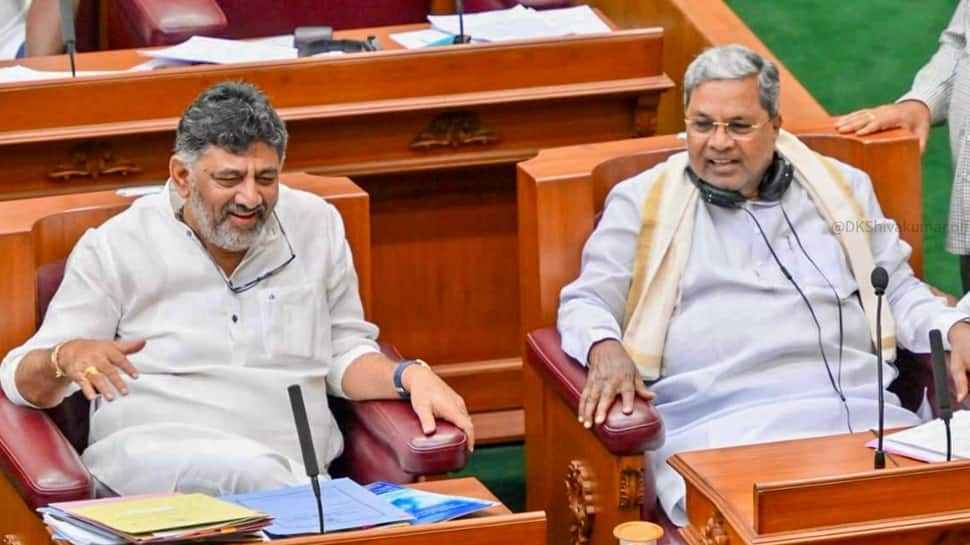ITR filing FY 2024-25: Why filing Income Tax Return is important even if you have no tax to pay – explained

By Surabhi MarwahITR filing FY 2024-25 (AY 2025-26: As the timeline for filing Income-tax Returns (ITR) approaches (September 15th for this FY, after extension), individuals, particularly those whose income falls below the taxable threshold, as well as Non-Resident Indians (NRIs) who do not earn any income in India, often wonder whether they are required to file a tax return in India. The truth is, filing your return plays a crucial role in various aspects of your financial and legal life.
The misconception of “No Tax = No ITR”
A common misconception is – “If I don’t owe any tax, why should I file a tax return?” Let’s clarify a fundamental point – the Income-tax Act, 1961 (the Act) requires individuals to file tax returns if their gross total income exceeds the basic exemption limit before claiming deductions. For Financial Year (FY) 2024-25, the threshold under the old tax regime is INR 2.5 lakhs for individuals below 60 years of age (INR 3 lakhs for resident individuals aged between 60 and 80 years, and INR 5 lakhs for resident individuals aged above 80 years), and it is INR 3 lakhs under the new/concessional tax regime. This means that individuals whose income is not taxable on account of claiming the rebate are also required to file tax returns. However, this is just the starting point. There are many other situations where you must file an ITR even if you do not owe any tax or your income is below the exemption limit. This has been further explained below.Also Read | ITR filing FY 2024-25: How can taxpayers switch between old and new income tax regimes? ExplainedFor example, Mr. A, earned INR 2.4 lakhs in FY 2024–25, primarily from pension and fixed deposits in the bank. Despite being below the exemption limit, his bank deducted INR 6,000 as TDS on interest from fixed deposits. Filing an ITR is his only way to claim a refund of this deducted tax.Carrying forward of capital lossesOne key reason to file your ITR, even if you have no taxable income, is the ability to carry forward capital losses for future tax benefits. It is however imperative to note that carry forward of losses from house property are not allowed under the new tax regime. Imagine you incurred a loss from sale of shares during FY 2024-25. If you do not file your ITR on time, those losses cannot be carried forward to offset future capital gains. Filing your return ensures these losses are offset with future capital gains, making a bad investment year potentially work in your favour later.The importance of foreign asset reportingAnother crucial reason to file returns, even with low or no income, is the requirement for foreign asset disclosure for individuals qualifying as Resident and Ordinarily Residents (ROR) in India Such individuals must report their overseas assets under Schedule FA of the ITR forms. Foreign assets such as bank accounts, financial interests, ESOPs allotted under the employer’s overseas stock incentive scheme, immovable property are to be reported regardless of the income levels. Failure to do so can lead to penalties under the Black Money Act, 2015 and, even prosecution in some cases.Also Read | ITR e-filing FY 2024-25: What is the benefit of pre-filled ITR forms on the income tax portal? Top pointsFor example, Mr. A and his spouse are joint owners of a foreign property. In this case, both must report the asset in their respective ITRs. This joint ownership requires careful attention to ensure compliance, as failure to report can attract scrutiny from tax authorities.In recent years, global information sharing has increased under the Common Reporting Standard (CRS). ROR receiving foreign remittances or holding foreign assets must ensure compliance with tax regulations. Skipping the filing of ITR to avoid FA reporting is not only risky but can also be questioned. Tax authorities are now equipped with automatic exchange of information mechanisms that provide them with insights into foreign transactions/ foreign assets, leading to notices and requests for information. Therefore, it is crucial for individuals to file their ITRs accurately and on time to avoid penalties and ensure compliance.Widened scope of mandatory ITR filing under section 139(1) of the ActThe Act specifies various criteria for mandatory tax return filing. Here are some of the scenarios that require individuals to file ITR, irrespective of their income levels:
- Depositing more than INR 1 crore in aggregate in a FY in one or more current accounts maintained with a bank or co-operative bank
- Spending more than INR 2 lakhs in aggregate on foreign travel in FY for self or for others
- Paying electricity bills exceeding INR 1 lakh in aggregate during the FY
- Holding assets outside India or being a signing authority on any foreign account during the FY or is a beneficiary to a foreign asset during the FY
- Claiming exemptions from capital gains under sections 54, 54B, 54EC or 54F of the Act, etc.
If you meet any of these criteria, even if your income is below the exemption limit, you are required to file your return.Also Read | ITR filing FY 2024-25: Do you need to file your income tax return if TDS has been deducted? ExplainedITR: Your Financial PassportIn today’s world, ITRs have become essential documents beyond tax compliance. Financial institutions, embassies, and even landlords view your return as a testament to your credibility.If you plan to apply for a visa, especially to countries like the US, UK, Schengen nations, or Canada, you will often need to submit ITRs for the past 2-3 FYs. Not having an ITR could lead to delays or denials. Similarly, loan applications, whether for a home or car, are often assessed based on the income reported in ITRs, even if your bank statements look good. For example, Priya, a freelancer, earned INR 2 lakhs in FY 2024-25. She did not file an ITR, thinking it was not necessary. Later, while applying for a Schengen visa, her application was delayed because she could not submit ITRs from the last two FYs, something consulates often expect, even without taxable income.Also Read | Income Tax Return: What is Form 16? Top things taxpayers should check in this document before filing ITRIn conclusion, filing an ITR is more than just a tax obligation; it is a way to establish your financial presence, ensure transparency, claim rightful refunds, and meet compliance requirements in an interconnected world. Whether you are a pensioner with TDS, salaried individual with foreign shares received under an overseas ESOP plan, a student with overseas accounts, or a homemaker planning international travel, your tax return can speak volumes when other documents cannot. Hence, it is essential that you evaluate your situation holistically to determine whether there is a requirement to file a tax return or not.(The author, Surabhi Marwah is Tax Partner, EY India. Ammu Sadanandhan, Director- Tax, EY India and Ojaswita Pathak, Tax Professional, EY India also contributed to the article.)





